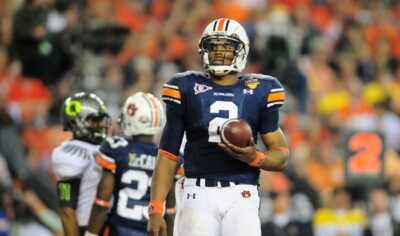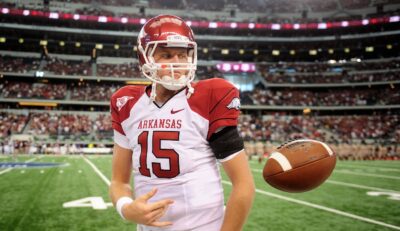A North Carolina sports betting bill has advanced through three House committees in just two days, needing just one more committee approval next week before moving to the House floor.
Rep. Jason Saine’s (R-97) online sports betting bill, HB 347, was approved in the House Finance Committee and House Judiciary 1 Committee yesterday, sending the legislation for a hearing in the Rules, Calendar and Operations of the House on Tuesday, March 28.
While the bill has moved rapidly through three committees, it did face several proposed amendments and will strip language to remove one particularly controversial element.
North Carolina focused on sports betting
Saine’s bill will allow between 10 to 12 online sports betting operators and sets the state’s sports betting tax rate at 14% of adjusted gross revenue. Operators will be able to deduct promotional bets and bonuses from their taxable revenue with no limitations through 2024, but the deduction rate will decline through 2026 and be disallowed starting Jan. 1, 2027.
If approved, the bill allows for online sports betting to start by Jan. 1, 2024. Residents much be 21 years of age to participate.
Online sports betting licenses will cost $1 million and be valid for five years. Sports betting in the state will be regulated by the North Carolina Lottery Commission, which would also award the sports betting licenses.
While being discussed in Judiciary Committee on Wednesday, Rep. Pricey Harrison (D-61) proposed five amendments to the bill. Her amendments would have accomplished the following:
- Prohibit betting on college or Olympic sports
- Raise the license fee from $1 million to $10 million
- Prohibit sports betting advertisements on school grounds or colleges
- Strike language from the bill for pari-mutuel and greyhound betting
- Raise potential fines for online sports betting operators from $10,000 to $1 million and impose a “three strikes and you’re out” rule for operators.
Saine said he was working on amending his bill to remove language for greyhound racing and Harrison withdrew her amendment. Her other four amendments were defeated in the committee hearing.
Harrison opposed college sports betting in 2022 discussions as well.
An amendment proposed during the bill’s Finance Committee hearing attempted to raise the 14% sports betting tax to 51%, moving it in line with New York as the country’s highest rate. The amendment was defeated.
Sports betting bill details
The proposed law allows bets on professional sports, college sports (including in-state schools), eSports, and the Olympic games.
Sports betting tax revenues will be distributed as follows:
- $2 million annually for gambling addiction and treatment services
- $1 million annually to Division of Parks and Recreation for the purchase of youth sports equipment
- $300,000 each annually to seven state universities for their athletic departments
- $1 million annually to Outdoor Heritage Advisory Council for grants
If there is any remaining revenue, it will be distributed as follows:
- 10% to the seven state universities for their athletic departments
- 30% to a fund to attract major sporting events to the state (Super Bowl, March Madness, etc.)
- 60% to the state’s general fund
North Carolina has been here before
In 2022, the North Carolina Senate approved a similar sports betting bill to Saine’s, but the law stalled out in the House of Representatives on the final day of the legislative session.
Members of the North Carolina House of Representatives approved the online sports betting bill, SB 38, on second reading by a vote of 51-50 on the final night of the 2022 session. However, the House voted down its concurrent bill, SB 688, later in the evening by just one vote.
Even before its vote on the House floor, SB 38 was drastically changed by an approved amendment to disallow collegiate sports betting in the state. Rep. John Autry (D-100) introduced the amendment and it was approved by a vote of 62-39. Autry brought up several alleged point shaving scandals involving former North Carolina State Basketball Coach Jim Valvano as reason for banning collegiate sports betting.
If the bills had been approved, 10 to 12 online operators would have been able to launch in North Carolina on Jan. 1, 2023. Fiscal analysis of the bills estimated nearly $25 million to $50 million annually to the state in sports betting tax revenues
Robert is an expert on sports betting in the United States, specifically the legalization process and regulation surrounding the industry.







